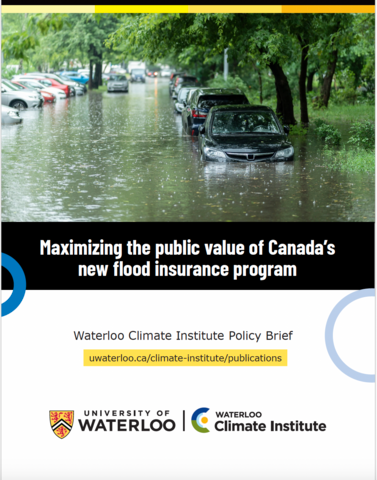
The Global Stocktake’s Impact on Climate Governance, Transparency, and Transitions
As COP29 takes place in Baku, Azerbaijan, a newly released information brief examines the international impact of the Global Stocktake on climate action. The inaugural Global Stocktake (GST), a keystone of the Paris Agreement, concluded last year at COP28 in the United Arab Emirates (UAE) with a resounding call for nations to escalate climate ambition. Key outcomes, highlighted in the brief, include the imperative for State Parties to revise Nationally Determined Contributions (NDCs) by 2025, ensuring they are informed by GST findings and integrate comprehensive strategies for renewable energy, biodiversity preservation, and emissions reduction

Marine carbon dioxide removal (mCDR) in Canada: Opportunities and Challenges
Neil Craik, Hope Elizabeth Tracey, and Kazra Motlaghzadeh share insights into marine carbon dioxide removal (mCDR), a set of methods that leverage the ocean’s biological and chemical characteristics to reduce atmospheric CO2. As Canada continues to show minimal progress towards its our 2050 net-zero emissions commitment through decarbonization and electrification efforts, mCDR is becoming a critical climate strategy option for Canada. This policy brief outlines strategies for the federal government in the adoption of mCDR research, development, and regulation.

Leveraging Nature-Based Solutions to Achieve Climate and Biodiversity Goals
As global leaders gather at the 16th meeting of the Convention on Biological Diversity (COP 16) in Cali, Columbia, in the fall of 2024, a new information brief underscores the importance of nature-based solutions (NbS) in tackling both climate change and biodiversity loss. Authored by Marie-Claire Cordonier Segger, Blessing Ajayi, Michelle Anagnostou, and Lydia Young, researchers with the University of Waterloo and Climate Institute, the brief underscores how the protection, management, and restoration of ecosystems can support global efforts to reduce climate risks while conserving biodiversity.

Maximizing the public value of Canada's new flood insurance program
Jason Thistlethwaite and Daniel Henstra outline key policy recommendations for Canada's new flood insurance program. Canadians are facing more uncertain insurance options as the impacts from extreme weather events due to climate change such as floodings or wildfires continue to rise. The policy recommendations aim to support policymakers and the insurance industry in addressing the gaps in insurance provision to homeowners located in high-risk zones across Canada.